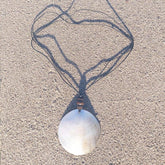Boxing Day and Mohammed Ali
What is the origin of Boxing day in the UK? Does it have anything to do with the Queensbury Rules and Mohammed Ali?
The short answer to the second question is simply no. Nothing at all to do with the noble art of boxing.
Let's ask Wikipedia to answer the second.
Boxing Day is a holiday celebrated after Christmas Day, occurring on the second day of Christmastide. Though it originated as a holiday to give gifts to the poor, today Boxing Day is primarily known as a shopping holiday. It originated in the United Kingdom and is celebrated in a number of countries that previously formed part of the British Empire.
The attached bank holiday or public holiday may take place either on that day or one or two days later (if necessary to ensure it falls on a weekday).
Boxing Day is also concurrent with the Catholic holiday Saint Stephen's Day. In parts of Europe, such as several regions of Spain, Czech Republic, Germany, Hungary, the Netherlands, Italy, Poland, Slovakia, Croatia, Denmark, Finland, Sweden, Belgium, Norway and the Republic of Ireland, 26 December is Saint Stephen's Day, which is considered the second day of Christmas.
The Oxford English Dictionary gives the earliest attestations from Britain in the 1830s, defining it as "the first weekday after Christmas day, observed as a holiday on which postmen, errand boys, and servants of various kinds expect to receive a Christmas box".
The term "Christmas box" dates back to the 17th century, and among other things meant:
A present or gratuity given at Christmas: in Great Britain, usually confined to gratuities given to those who are supposed to have a vague claim upon the donor for services rendered to him as one of the general public by whom they are employed and paid, or as a customer of their legal employer; the undefined theory being that as they have done offices for this person, for which he has not directly paid them, some direct acknowledgement is becoming at Christmas.
In Britain, it was a custom for tradesmen to collect "Christmas boxes" of money or presents on the first weekday after Christmas as thanks for good service throughout the year.
This is mentioned in Samuel Pepys' diary entry for 19 December 1663.
This custom is linked to an older British tradition where the servants of the wealthy were allowed the next day to visit their families since they would have had to serve their masters on Christmas Day. The employers would give each servant a box to take home containing gifts, bonuses, and sometimes leftover food.
Until the late 20th century there continued to be a tradition among many in the UK to give a Christmas gift, usually cash, to vendors, although not on Boxing Day as many would not work on that day.
So there you have it.












Leave a comment
All blog comments are checked prior to publishing